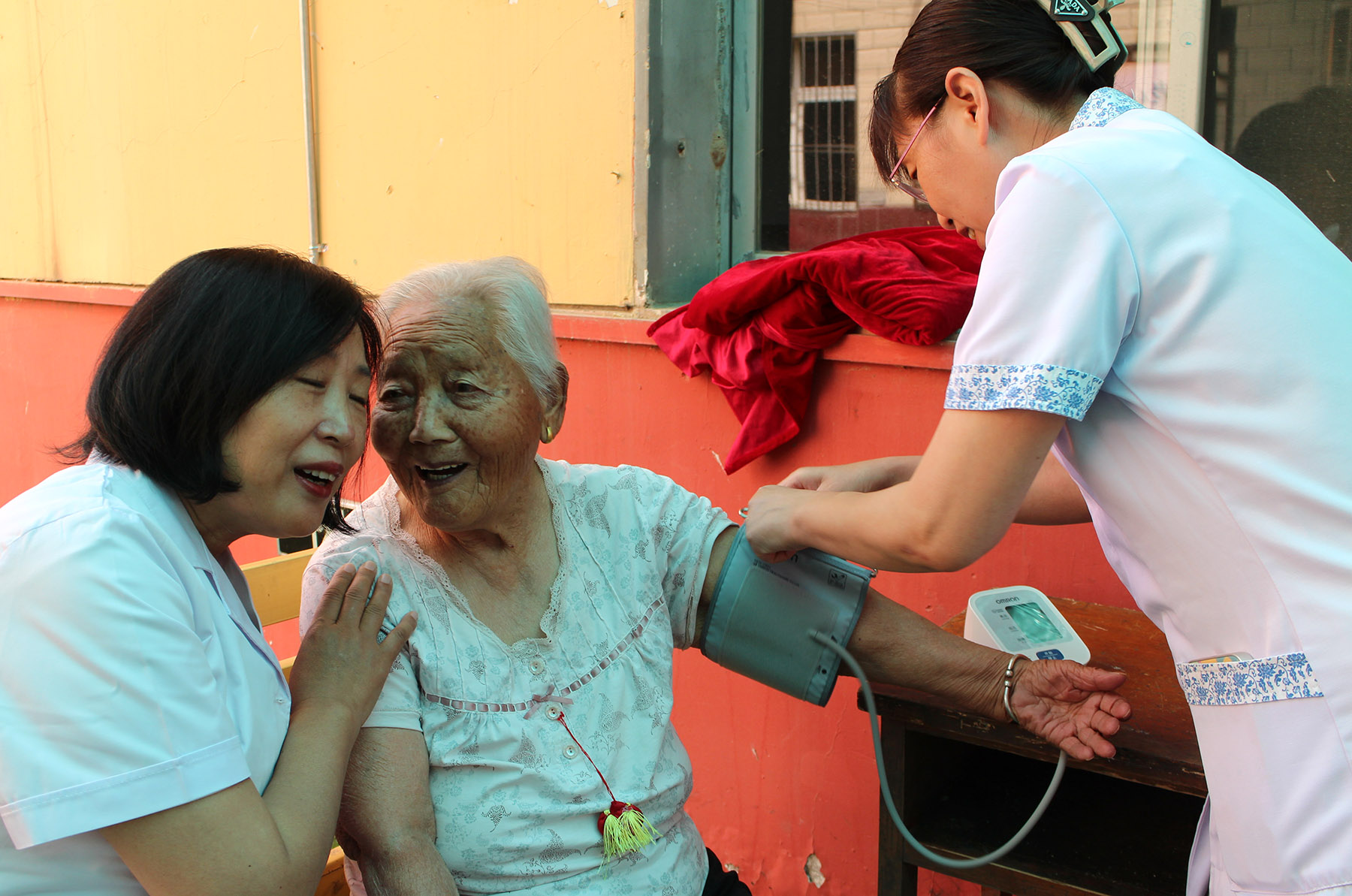Subsidy program aims to support aging strategy, boost consumption

China has launched a subsidy program for elderly citizens with moderate to severe disabilities, supporting its national aging strategy while aiming to improve elderly care services and boost consumption.
The program, announced by the Ministry of Civil Affairs and the Ministry of Finance on Wednesday, will provide electronic vouchers through the civil affairs ministry's "Minzhengtong" digital platform to eligible seniors assessed as having moderate, severe or complete disabilities.
The subsidies will cover home and community-based elderly care services, including meal assistance, bathing support, rehabilitation nursing and day care, along with institutional care for both long-term stays exceeding 30 days and short-term care under 30 days. Recipients will be able to offset service costs proportionally using monthly distributed vouchers.
READ MORE: China steps up support for social participation of seniors amid population aging
The pilot program's implementation begins this month in selected regions, including Zhejiang and Shandong provinces, Chongqing, and the cities of Shenyang in Liaoning province, Chuzhou in Anhui province, Xinyu in Jiangxi province and Chengdu in Sichuan province. Nationwide expansion is scheduled for late 2025.
Funding will follow a tiered costsharing model, with the central government covering 85 percent of costs in eastern regions, 90 percent in central areas and 95 percent in western regions.
Eligible seniors can apply voluntarily through the "Minzhengtong "platform using available assessments.
Local authorities have been instructed to integrate existing systems with the platform, implement data security protocols and conduct regular monitoring. Oversight measures will include verifying assessment quality, preventing service fraud and blocking pricing manipulations, such as "pre-subsidy price hikes".
Civil affairs departments will bear primary implementation responsibilities, requiring dedicated staffing, training and quarterly progress reports. Finance departments will enforce full-process fund supervision.
China had an elderly population of 310 million people aged 60 and above by the end of last year, accounting for 22 percent of the total population, according to government figures.
An official with the Ministry of Civil Affairs said seniors with moderate to severe disabilities will receive monthly vouchers via the "Minzhengtong" platform, with values tentatively set at 800 yuan, or about 112 dollars, for long- and short-term institutional care and day care, and 500 yuan for in-home services.
ALSO READ: Consumption vouchers issued to boost spending in China
When purchasing services, these vouchers can offset 30 to 60 percent of the costs, with the initial offset rate set at 40 percent. For example, a 100 yuan in-home service would cost the senior 60 yuan after applying a 40 yuan voucher, the official said.
Elderly care consumption is a major sector in China's overall consumption and an important contributor to the economy. The voucher program is expected to attract more social investment in elderly care, boost sector development and cultivate new economic growth drivers, the official said.
China had 40,000 elderly care institutions and 364,000 community elderly care facilities by the end of March. Institutions and facilities that wish to participate in the program are required to register with the ministry and meet basic standards. Those found to be in violation of regulations will be removed from the program.
Contact the writer at zoushuo@chinadaily.com.cn


